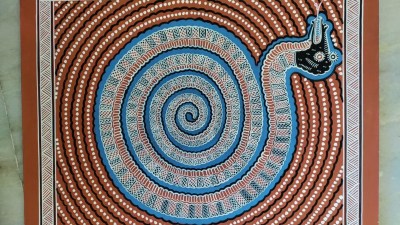Sweet and Sour
From a chattering monkey to denim dynamics
From a chattering monkey to denim dynamics
It is one of the splendid ironies of fiction the ridiculously commonplace,those little banalities of life,is always the most difficult to pull off. Returning a pair of stained Hilfiger jeans can be as tiresome in a story as it is in life. And that is the first hitch as you negotiate the debut collection of short stories by Mridula Koshy,If It Is Sweet.
If Koshys social dynamics-through-denim does not work in Jeans,her exploration of homosexuality between two school girls who have grown up The Large Girl remains as flippant as two women furtively passing a smoke on the terrace. For,the large girl Janet,who reads Kabuliwallah lying on top of Her and kisses Her under the stairs,strains against stereotyping and finally fades away in the larger world of heterosexual goings-on.
But if you are patient enough to survive the first few stories in the collection,you will be delighted by the surreal Companion. After her sixty-second birthday,Maajis companion,a talking male monkey with light-hued fur and oddly pleasing eyes who would sweep,mop,dust and crack eggs for breakfast,takes her to his home by the green house in Phuntsholing,Bhutan. There he makes her go up in a swing,her frail,stitched-up body levitating in the fluid movement of sky and dissolving on the wooden seat,while the monkey searches for sugar in the plastic canister in the kitchen. Sweet.
The 17 stories,far too many for an anthology,stretch from the streets of Delhi where a boy holds a Vog against the car window Same Day to an apartment in 1609 N. Normandie between Sunset and Hollywood where memories of the year 1979 ribbon cakes and bread dipped in fish curry and a father returning from jail on Thanksgiving Day grow like mould When a Child was a Child. The underclass of cities emerges in tales such as Today is the Day where the servant boy Suraj leaves his home in Uttar Kashi for Delhi and ceases to grow,and Romancing the Koodawala where the maid Mona romances the ragpicker who wears pastel-coloured shirts buttoned up at the wrists,but Koshys best stories are where she says it directly in one lucid narrative,without the visual callisthenics of varying fonts or italicisations,without striving for effect with scatological details or her observant eye going on an overdrive with minutiae. These are the tales of siblings,Once in 1982 and Passage.
In the former,Alok climbs the light tower being built at the Jawaharlal Nehru Stadium,just before the Asian Games in Delhi. He races the steps,but soon the metal is hot,his palms sweat. The lights closer now are overwhelmingly hot and what he thinks he is climbing is a stairway that will pull him into the sun. And later his little sister who watches his failed attempt takes him to a star jasmine bush: Its like the sun you were looking for. You have to squeeze your eyes, she says. He does,and sees: burnished by April morning,a pulsing globe seething with white bloom and green leaf. Each white flower blooming not its habitual,single-petalled,star-shaped bloom,but something hinged and also white that lays flat to the petals then flick-folds upright . A sun for you. A sun for you, Maya continues her chanting. Happiness is a hammer blow that he bows under. He wants to tell her that he sees it is like a sun. Sweet.
- 01
- 02
- 03
- 04
- 05






























